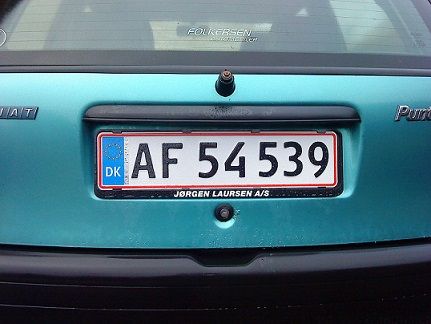The Danish tax authority SKAT has been under fire for the last few years over everything from the staggering amounts Danes owe that are having to be written off to gross anomalies in the system of calculating land prices for homeowners.
Now it seems as if the system for keeping tabs on people who haven’t paid their car registration tax is also broken.
Driving Miss Daisy
According to correspondence between the state auditors Rigsrevisionen, the tax authorities and the Tax Ministry, which has landed in the lap of BT tabloid, around 400,000 motorists owe money.
READ ALSO: Danes in debt to the state to the tune of 116.1 billion kroner
In 2012 it was decided to set up a digital platform, Digitale Motorregister, to handle matters relating to car tax. At the same time, the practice of sending bills owing for registration tax and green taxes automatically to a debt collecting system was discontinued. Since then, the number of bad payers has exploded.
According to DR, at least 200,000 drivers are using cars that ought to have had their number plates removed by the police so that they are unable to use the roads.
“When someone owns a car but doesn’t pay their taxes we send a request to the police for them to remove that person’s number plates,” says deputy director Peter Thorgaard from the tax authority.
Since the new system came into effect, not one single request of this sort has been sent to the police.
It’s anybody’s guess
The authority does not have a complete overview of the amount owing but it is estimated that it amounts to 1.3 billion kroner.
However, the tax authorities are making efforts to claw back some of the money through people’s end-of-the-year tax statements.
“It’s important to point out that it’s not as if we’ve done nothing since 2012. We’re still sending the information on car owners who haven’t paid their bills to a debt collecting system,” said Thorgaard.
“This means that the money will be deducted on their annual tax statement. Last year we managed to get 150 million kroner this way,” he added.











